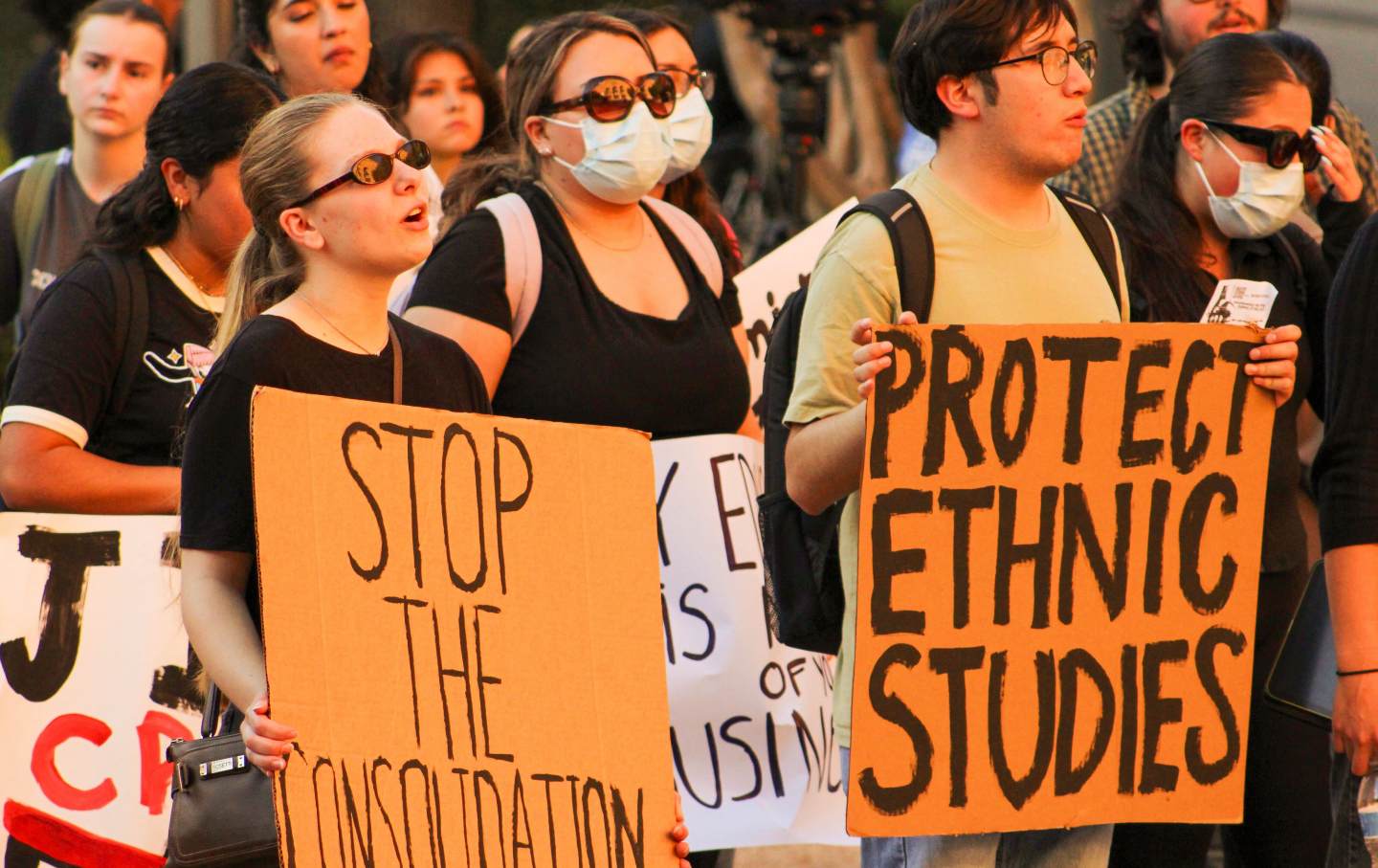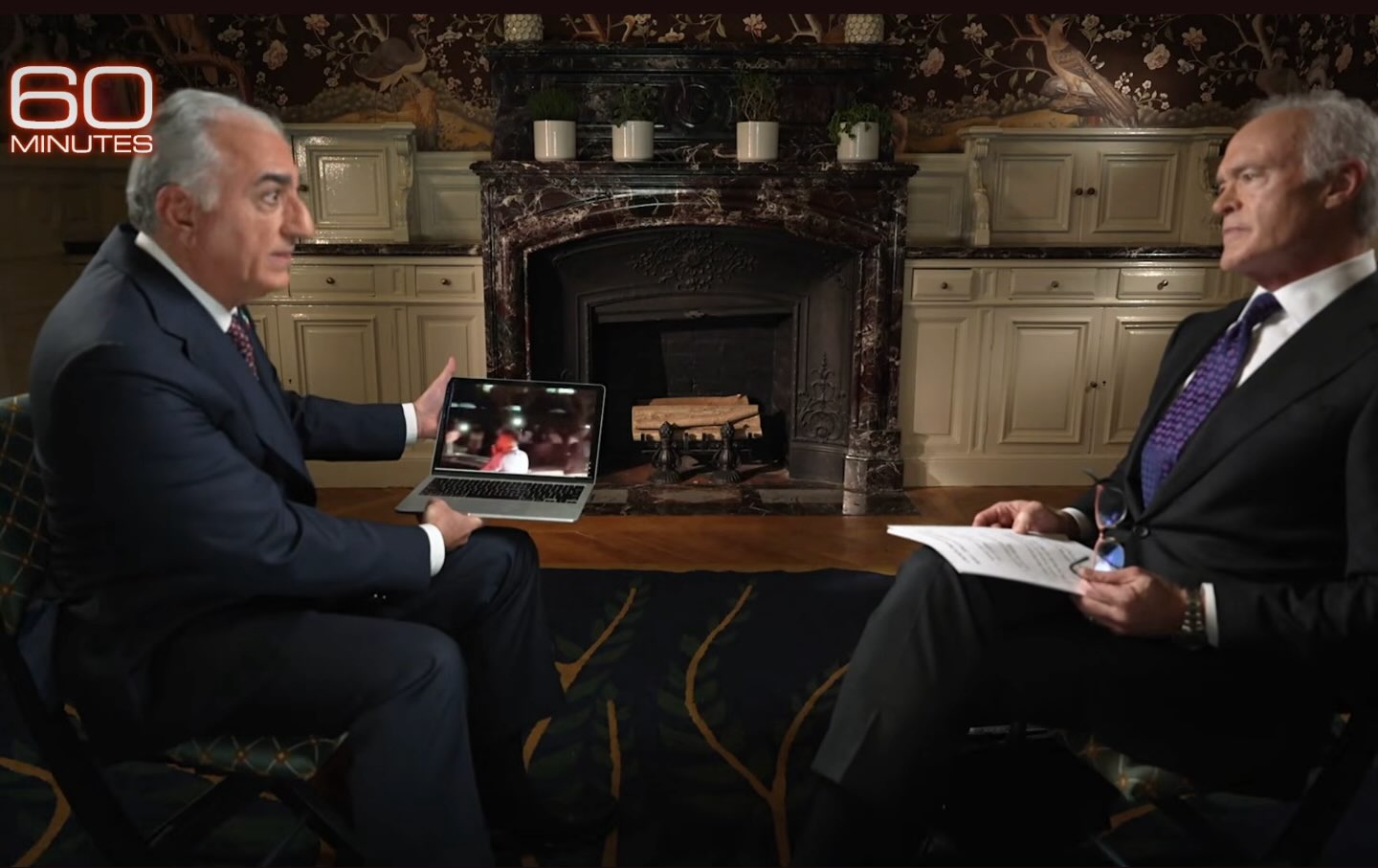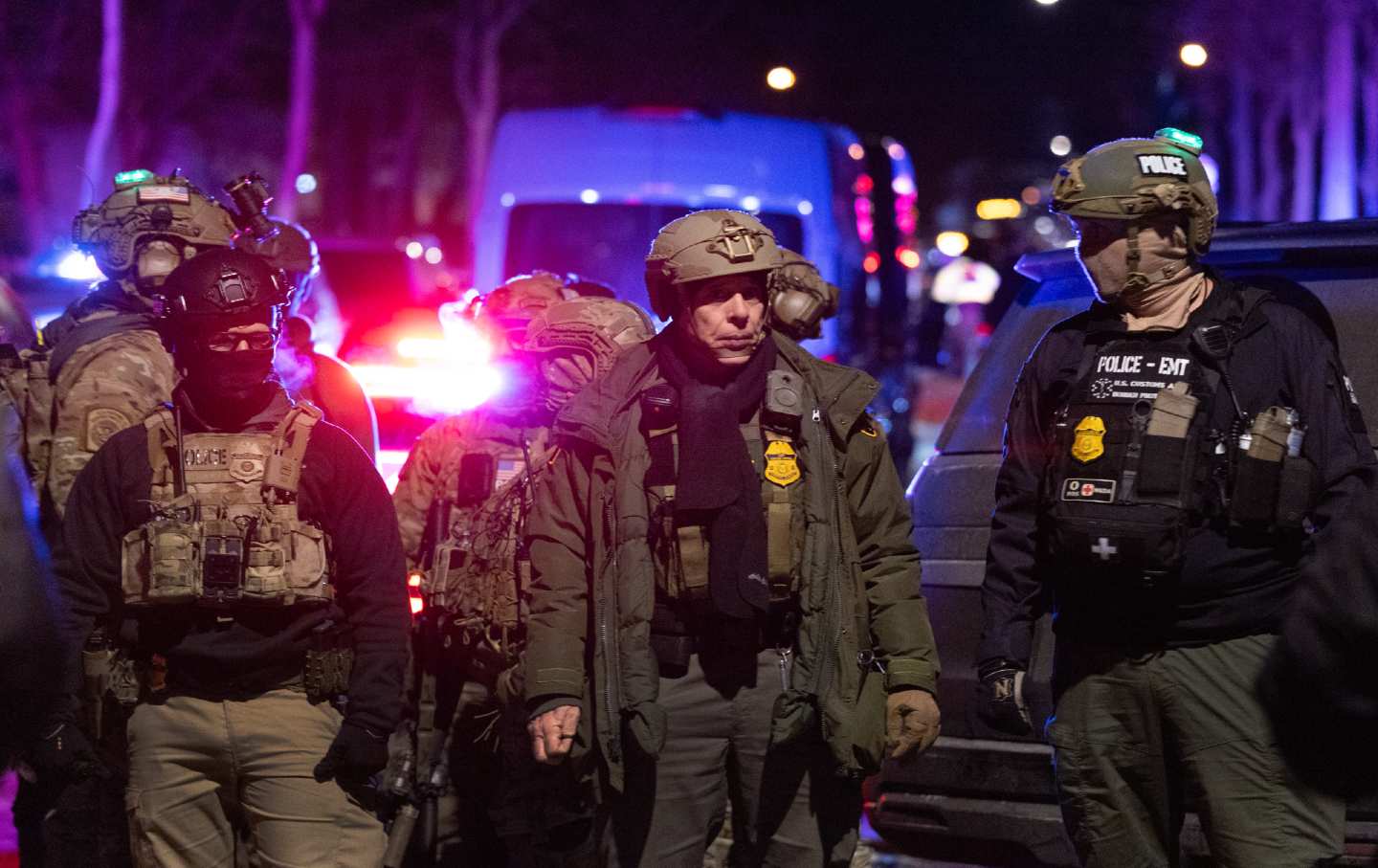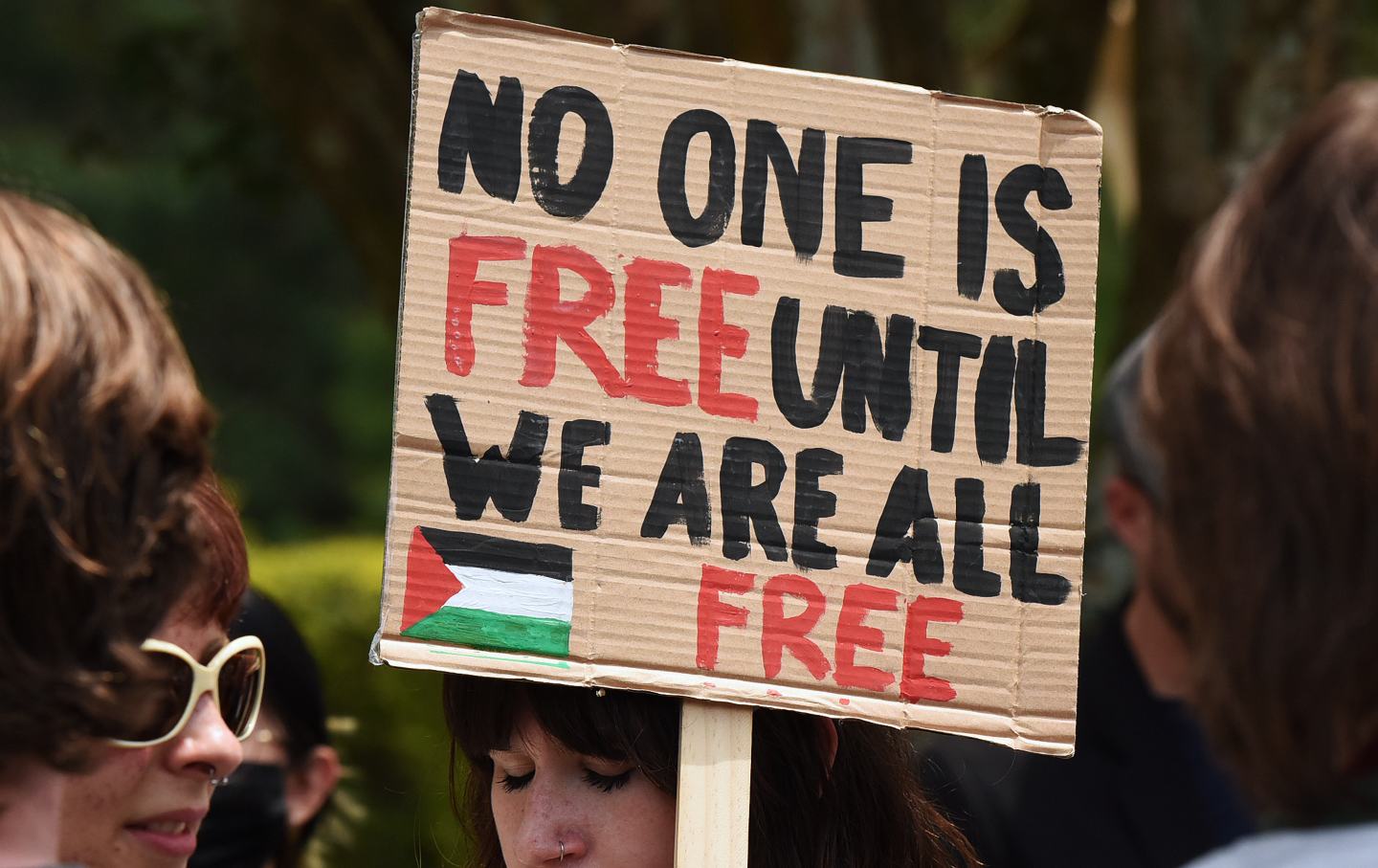Palestine Shows Up for FIFA. FIFA Turns Its Back on Palestine.
FIFA has chosen to say nothing while Israel massacres Palestinian soccer players, coaches, and sports officials.
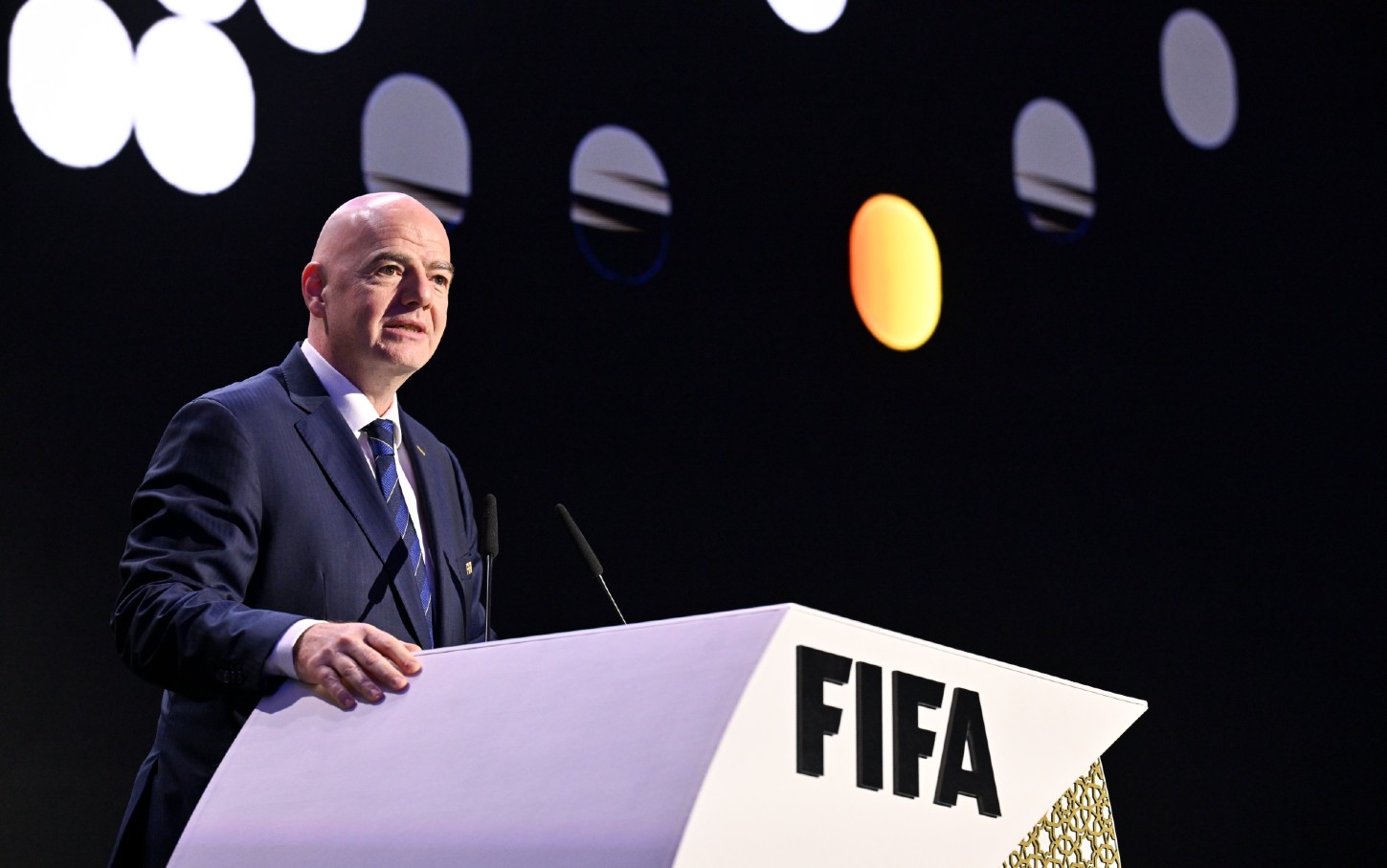
Before the 2022 World Cup in Qatar, FIFA president Gianni Infantino was fed up. Critics were denouncing the choice to host the event in the petro-state, given its abysmal human rights record. Infantino responded defiantly in a bizarre and rambling statement of solidarity with the host country—and the billionaire barons behind it—saying, “Today I feel Qatari. Today I feel Arabic. Today I feel African. Today I feel gay. Today I feel disabled. Today I feel [like] a migrant worker.”
(Fact check: Infantino has never felt like a migrant worker in his life.)
Infantino was trying to say, however awkwardly, that soccer must be for everyone. Yet when it comes to his laundry list of symbolic identities, he clearly does not “feel” Palestinian. Other than a “condolence letter” on October 13, sent only to the head of the Israeli Football Association, calling on soccer to be “a vehicle for peace,” Infantino has chosen to say nothing while Israel massacres Palestinian soccer players, coaches, and sports officials.
Infantino’s refusal to make even a token call for a permanent cease-fire reveals him to be a hypocrite. Infantino and FIFA leapt into action against Russia following its invasion of Ukraine, temporarily banning them from all competition. (FIFA in its statement at the time said, “Football is fully united here and in full solidarity with all the people affected in Ukraine.”)
FIFA’s silence was especially disturbing in January, when, amid the horrors of the Israel Defense Forces attacks, Palestine sent a team to the Asian Cup, where they did surprisingly well by making it to the quarterfinals. The team was a fan favorite, and the subject of a great deal of media coverage—at least outside the United States. The irony blares: Here is the Palestinian team, as Jules Boykoff pointed out to me, showing up for FIFA and playing a tournament under extreme duress, and here is FIFA turning its back.
Infantino’s silence and venality is damning. He will stand up to the West for Qatar’s billions but not for a people in desperate need of courage and a voice. He is making clear through his actions that FIFA will not cross the United States and Europe when it could affect the bottom line. The price of FIFA’s self-censorship came into focus this week after Israel killed star Palestinian national team member Mohammed Barakat. In a video widely seen over social media, Barakat filmed his last public words as he could hear Israeli air strikes getting closer. He said, in part,
“Perhaps life has ended, or perhaps there is still life ahead, and only the Knower of the Unseen of the heavens and the earth determines this… So I ask for your forgiveness and your prayers… My mother, my father, my children, by Allah, you are dear to me and precious to me… I entrust you to Allah, whose trust is never lost… I conclude here… your prayers… This is where I end.”
Known as the “legend of Khan Younis,” the 39-year-old Barakat was the first player in the Gaza Palestinian league to score 100 goals. He also played for the Al-Wahdat Club in Jordan as well as professionally in Saudi Arabia. None of that mattered as Israel hit Barakat’s family’s home on the first day of fasting during the Islamic holy month of Ramadan. According to the International Palestinian Football Association, Barakat is just one of hundreds of Palestinian players at all levels who have been killed by Israeli attacks. Israel even killed Hani Al-Masdar, one of Palestine’s greatest players and a manager of the Olympic team, in January, and yet FIFA said nothing.
Perhaps that shouldn’t be too surprising. No one should ever look to FIFA or Infantino for moral guidance. Yet we should still demand that FIFA speak out. FIFA represents the world’s most popular sport, and it has a responsibility, as Infantino attempted to convey, to represent everybody. FIFA has a power that could be a force of unity and justice. Infantino’s global solidarity, however, clearly does not extend to Palestinians. When we speak about the dehumanization of the Palestinian people, FIFA’s silence is a part of what makes that a reality. This dehumanization is a prerequisite to the dancing IDF soldiers, the parties with a bounce house blocking food aid, the Israeli rappers making genocide anthems, and all the other attendant horrors. We must remember who chose to speak and who remained silent, but we also must put pressure on the silent to raise their voices. In the weeks ahead, Infantino will be remembered for what he says—and for what he doesn’t.


